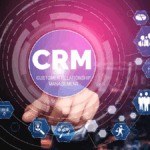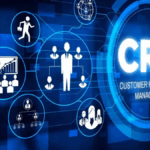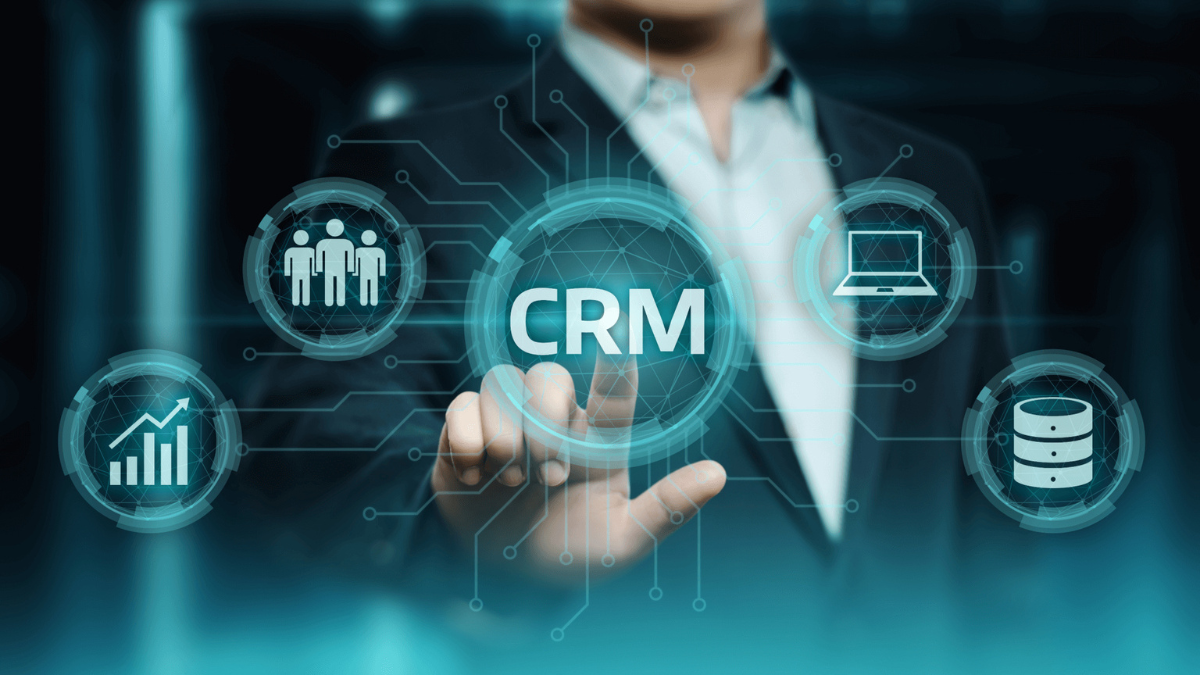In a world where customer experience defines business success, companies can no longer rely on spreadsheets, sticky notes, or disconnected tools to manage relationships. If you’re running a growing business, you need a way to centralize communication, streamline sales, and deliver personalized experiences at scale. That’s where a CRM (Customer Relationship Management) system becomes indispensable.
Whether you’re scaling your startup, managing an expanding customer base, or looking to build lasting relationships with leads, a CRM system ensures your growth doesn’t come at the cost of service quality or efficiency.
Let’s explore why a CRM system is essential for every growing business today, how it supports key functions, and what to look for when choosing one.
What Is a CRM System?
CRM Defined
A Customer Relationship Management (CRM) system is a software tool that organizes, tracks, and manages customer interactions and data throughout the customer lifecycle—from prospect to loyal customer.
It consolidates contact details, sales pipelines, communication logs, and task management, giving your team a single source of truth about every customer.
H3: Core Functions of a CRM
- Contact and lead management
- Sales tracking and pipeline automation
- Customer segmentation and targeting
- Email, phone, and chat integration
- Analytics and performance insights
- Task reminders and workflow automation
The Urgency: Why Growing Businesses Need CRM Now
Growth Brings Complexity
As your business grows, so does the volume of customer interactions. Without a CRM, it’s easy to:
- Lose track of follow-ups
- Overlook key prospects
- Miss deadlines
- Provide inconsistent service
Customers Expect Personalization
Today’s customers expect businesses to remember their preferences, purchase history, and previous conversations. A CRM system enables this by centralizing and tracking every touchpoint.
Manual Methods Waste Time
Managing customer data manually is inefficient and error-prone. A CRM automates repetitive tasks, freeing up your team to focus on strategic activities.
Disconnected Teams Create Disjointed Experiences
If your sales, marketing, and service teams use separate tools, the customer experience suffers. A CRM connects everyone under a unified customer view.
Benefits of a CRM System for Growing Businesses
1. Enhanced Sales Productivity
- Visualize sales pipelines
- Set automated follow-ups and reminders
- Identify hot leads with scoring systems
- Track performance with dashboards
2. Better Lead Management
- Capture leads from websites, ads, and emails
- Segment them by interest, region, or behavior
- Nurture leads through automated workflows
- Increase conversion rates with timely follow-ups
3. Improved Customer Service
- Access customer history instantly
- Resolve issues faster with context
- Use AI chat or ticketing systems for faster responses
- Increase satisfaction and loyalty
4. Streamlined Marketing
- Launch targeted campaigns
- Automate emails and newsletters
- Track opens, clicks, and conversions
- Align marketing with real customer behavior
5. Smarter Business Decisions
- Use CRM data to understand sales trends
- Identify bottlenecks and team performance issues
- Forecast revenue with greater accuracy
- Make data-driven decisions in real-time
Real-Life Scenario: Before and After CRM
Business: A boutique travel agency
Challenge: Missing follow-ups, duplicated contacts, delayed responses
CRM Implemented: Zoho CRM
Before CRM:
- Customer inquiries spread across emails and WhatsApp
- Manual spreadsheets for bookings
- Frequent errors and missed bookings
After CRM:
- All leads automatically captured from the website
- Staff get automated reminders for follow-ups
- Sales grew 40% in 6 months
- 5-star customer reviews increased by 60%
Key Features to Look for in a CRM System
User-Friendly Interface
Your team needs to adopt and use the CRM regularly. Look for intuitive dashboards and minimal training requirements.
Customizable Pipelines
Every business is unique. Your CRM should let you customize sales stages, fields, and workflows to fit your model.
Mobile Access
Growing businesses are always on the move. A mobile-friendly CRM ensures access anytime, anywhere.
Automation Capabilities
From emails to task reminders, automation reduces manual effort and ensures consistency in outreach and follow-up.
Integration Options
Ensure your CRM integrates with tools like:
- Gmail/Outlook
- Slack
- QuickBooks
- Shopify
- Zoom
- Marketing platforms like Mailchimp or ActiveCampaign
CRM and Business Functions: What It Supports
CRM for Sales
- Prioritize hot leads
- Automate repetitive communication
- Reduce human error in deal tracking
- Increase closing rates with data insights
CRM for Marketing
- Create drip campaigns
- Track engagement
- Align with sales on lead scoring
- Segment contacts for better ROI
CRM for Customer Support
- View full customer histories
- Create service tickets with ease
- Analyze service metrics
- Improve CSAT and retention
Overcoming CRM Implementation Challenges
Resistance to Change
Solution: Choose an easy-to-use platform and involve your team early in the selection process.
Data Migration Concerns
Solution: Most CRMs offer import tools and migration assistance. Clean your data before the move.
Cost Concerns
Solution: Many CRM systems have free or low-cost versions for small businesses.
Lack of Time or Training
Solution: Look for CRMs that offer onboarding support, tutorials, and help centers.
Popular CRM Platforms for Growing Businesses
| CRM | Best For | Key Features |
|---|---|---|
| HubSpot CRM | Startups & SMBs | Free version, powerful automation, sales+marketing tools |
| Zoho CRM | Budget-conscious businesses | AI features, custom modules, mobile access |
| Freshsales | Fast-growing sales teams | Built-in phone/email/chat, visual pipelines |
| Salesforce | Scaling enterprises | Highly customizable, powerful reporting |
| Pipedrive | Sales-focused teams | Easy-to-use interface, automation, lead tracking |
Future-Proofing Growth With CRM
Scalability
Choose a CRM that grows with you—adding users, features, and integrations as needed.
Analytics & AI
Leverage predictive insights to know when to upsell, cross-sell, or re-engage customers.
Customer-Centricity
In a competitive market, customer relationships are your edge. A CRM helps you nurture them at every touchpoint.
Conclusion
A growing business is a thriving business—but without the right systems in place, growth can spiral into chaos. A CRM helps you stay organized, deliver excellent customer service, and close more deals—all while saving time and reducing manual effort.
In today’s competitive landscape, a CRM is not a luxury or a future investment—it’s a necessity. Whether you’re nurturing 100 leads or managing thousands of customers, a CRM system keeps your team aligned, your data centralized, and your growth on track.
The time to invest in a CRM isn’t tomorrow—it’s today.
FAQs
1. What size of business needs a CRM system?
CRM systems are beneficial for all sizes, but especially for growing businesses that need to manage a rising volume of customer interactions and leads.
2. Are CRM systems expensive?
Not necessarily. Many CRM platforms offer free tiers or affordable pricing based on features. As your business grows, you can scale up accordingly.
3. How long does it take to set up a CRM?
Basic setup can take a few hours. More complex customizations may require days or weeks depending on your needs and the CRM’s capabilities.
4. Can I integrate a CRM with my existing tools?
Yes. Most CRMs offer integrations with common tools like Gmail, QuickBooks, Mailchimp, Slack, Shopify, and more.
5. Will my team actually use the CRM?
Adoption depends on ease of use and training. Choosing an intuitive CRM and involving your team in the onboarding process increases usage rates significantly.











